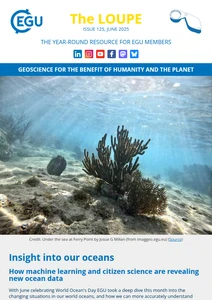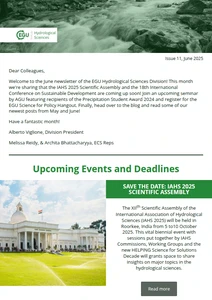President: Alberto Viglione
(Emailhs@egu.eu)
Deputy President: Maria-Helena Ramos
(Email)
ECS Representative: Melissa Reidy
(Emailecs-hs@egu.eu)
The Hydrological Sciences (HS) Division is concerned with all aspects of the terrestrial hydrological cycle (including precipitation, surface water, soil water, groundwater) from the pore scale to the global scale, and its relationships and interactions with the atmospheric part of the hydrological cycle. The division also covers the interaction between hydrology and geomorphology (e.g., erosion, sedimentation, groundwater systems), the relationships between hydrology and soils, as well as the interaction between the hydrosphere and the biosphere (e.g., ecohydrology, wetlands). The ways in which hydrological processes are observed, quantitatively computed, and forecasted are also addressed by the division. Management and operation of water resources by societies in various parts of the world is also within the division's realm.
The Hydrological Sciences Division (HS) has five main tasks:
- Organizing the hydrological part of the program during the annual EGU General Assembly
- Running its on-line open access journal: Hydrology and Earth System Sciences (HESS)
- Recognizing deserving colleagues in various stages of their careers with its Award program.
- Encouraging the interaction and active participation of young hydrologists within the hydrological community
- Circulating news, information, job adverts, announcements of opportunity or meetings that may be relevant to the hydrological community
Such tasks require considerable (voluntary!) input from many people, and offer plenty of opportunities to become actively involved.
To ensure that the sessions during the General Assembly cover our science as comprehensively as possible, there are currently ten Subdivisions, including a subdivision on general hydrology (monitoring and cross cutting issues). Distinct fields within the broad area of hydrology are covered. Each Subdivision Committee organises a set of oral, poster or PICO sessions to cover its field. The members of the Subdivision Committees meet during the EGU General Assembly and start preparing the draft programme for next year’s meeting in late spring/early summer. Membership of the committees of these Subdivisions is open: you can e-mail the Subdivision Committee Chair to request membership or you may directly join the meeting during the General Assembly to get involved in the Subdivision activities and in particular in the organisation of the programme, including proposal of sessions and volunteering as convener or co-convener (see overview of Programme Organisation and Convener Tasks).
You can also become involved in the Hydrology and Earth System Sciences (HESS) journal. In addition to submitting your best scientific work to HESS, consider that the journal needs both referees and members of its Editorial Board to cover a sufficiently broad spectrum of expertise to adequately handle all incoming papers. If you would like to become active as a referee or as an editor you may therefore consider informing any editor or Executive Editor of your wish.
The Division contributes to the EGU Awards & Medals programme that recognises every year eminent scientists for their outstanding research contribution and identifies the awardees as role models for the next generation of young scientists to foster geosciences research. In particular, members of the Division are invited to contribute to the nominations (deadline are every year on the 15th June, see here) for both the young and senior HS Division Awards and Medals (link).
The EGU offers a platform for young scientists to become involved in hydrological research, through sessions, social events and short courses at the annual General Assembly in April. Several activities are especially aimed for Young Scientists in the Hydrological Science, organised with the help of the Young Hydrologic Society.
Lastly, you are invited to share the news/information that may be of interest to the EGU Hydrological Sciences community, by sending a tweet to @EGU_HS or filling in the activity calendar webform.
Do not hesitate to contact the Division President or any Division Officer if you need any additional information on our activities!
Latest posts from the HS blog
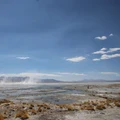
On finding my water temperature community
Walking the halls of the EGU General Assembly 2025 a few weeks ago, I was full of child-like curiosity. Being surrounded by people doing fascinating, creative, and innovative research felt like a dream come true. New faces every day, big talks on small advances and complicated methodologies. I learned about mountain ecology and failing snow-models, and I was captured by graphs and animations – as well as by the people explaining them to me. I was elated at first. Yet …
Read more

How to include AI methods in your next proposal
For all those of us who write research funding proposals, the massive avenue of powerful AI methods poses a serious challenge: how can we appropriately include such methods in our next research project? Is it mandatory, or can we happily focus on our field, lab or numerical methods that we used to always work with? For proposal evaluators, on the other hand, there is this feeling that many proposals mention unspecific machine learning (ML) methods just because they must be …
Read more
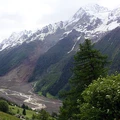
The Blatten landslide in Switzerland
In the morning of May 28, 2025, the picturesque Swiss alpine village of Blatten sat quiet and serene in the Lötschen Valley. Exceptionally quiet, in fact, as the village was evacuated on May 19th after a local Natural Hazards expert spotted a worrisome change in a local mountain looming about the village, the Kleines Nesthorn: it was collapsing faster. The Kleines Nesthorn is a 3,341-meter peak with a known instability between rock layers that has caused the mountain to shift …
Read more
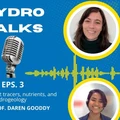
Hydrotalk Episode 3 with Daren Gooddy
HydroTalks: Prof. Daren Gooddy talking about groundwater nutrients, contaminants and tracers Welcome to HydroTalks, the EGU HS division’s podcast series where we discuss advancements, challenges, and opportunities in hydrology. In this episode, we chatted to Prof. Daren Gooddy (Daren Gooddy|LinkedIn). Prof. Gooddy is a hydro-geochemist with over 30 years of experience as a groundwater processes team leader in the British Geological Survey. He’s currently working with the UK Centre of Ecology. His research encompasses groundwater chemistry and understanding contaminant fate …
Read more
Recent awardees
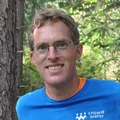
The 2025 Henry Darcy Medal is awarded to
Jan Seibert for pioneering work promoting Open Science with hydrological models, and building bridges between experimentalists and modellers, between physical and conceptual approaches, and to citizen science.
Read more

The 2025 John Dalton Medal is awarded to
Paolo D'Odorico for outstanding scholarship on water and its ties to environmental justice, energy, and food security.
Read more

- 2025
- Arne Richter Award for Outstanding Early Career Scientists
The 2025 Arne Richter Award for Outstanding Early Career Scientists is awarded to
Frederik Kratzert for outstanding research in hydrological modelling and open science, particularly through Artificial Intelligence-based approaches in large-sample hydrology studies.
Read more
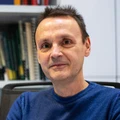
The 2024 Henry Darcy Medal is awarded to
Alberto Guadagnini for his advancements in the frontiers of hydrology through development and application of quantitative, process-based, flow and chemical transport models in subsurface water bodies under uncertainty.
Read more

The 2024 John Dalton Medal is awarded to
Paul D. Bates for outstanding contributions to the modeling of flood hydrology from the local to the global scale.
Read more

- 2024
- Division Outstanding Early Career Scientist Award
The 2024 Division Outstanding Early Career Scientist Award is awarded to
Andrea Cominola for outstanding research on data-driven behavioural modelling in coupled human-water systems.
Read more

- 2024
- Outstanding Student and PhD candidate Presentation (OSPP) Award
The 2024 Outstanding Student and PhD candidate Presentation (OSPP) Award is awarded to
Amirhossein Ershadi Ensemble Surrogate Modeling of Advective-Dispersive Transport with IntraParticle Pore Diffusion for Column-Leaching Tests
Read more

- 2024
- Outstanding Student and PhD candidate Presentation (OSPP) Award
The 2024 Outstanding Student and PhD candidate Presentation (OSPP) Award is awarded to
Anastasia Vogelbacher Heatwave occurrence worldwide: A comprehensive analysis integrating land properties, climate variables and groundwater depth
Read more
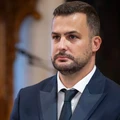
- 2024
- Outstanding Student and PhD candidate Presentation (OSPP) Award
The 2024 Outstanding Student and PhD candidate Presentation (OSPP) Award is awarded to
Anastasios Perdios Climate Risk and Vulnerability Assessment (CRVA) for the Port of Heraklion in Greece
Read more

- 2024
- Outstanding Student and PhD candidate Presentation (OSPP) Award
The 2024 Outstanding Student and PhD candidate Presentation (OSPP) Award is awarded to
Franziska Clerc-Schwarzenbach What is more important for model calibration: information on the discharge dynamics or information on the discharge volume?
Read more

- 2024
- Outstanding Student and PhD candidate Presentation (OSPP) Award
The 2024 Outstanding Student and PhD candidate Presentation (OSPP) Award is awarded to
Mirjam Scheller Combining citizen science data and the hierarchical structuring of temporary streams to reconstruct the patterns of channel wetting and drying
Read more

- 2024
- Outstanding Student and PhD candidate Presentation (OSPP) Award
The 2024 Outstanding Student and PhD candidate Presentation (OSPP) Award is awarded to
Patrick Sogno Exploring Trends, Patterns, and Drivers of African Surface Water Dynamics
Read more

- 2024
- Outstanding Student and PhD candidate Presentation (OSPP) Award
The 2024 Outstanding Student and PhD candidate Presentation (OSPP) Award is awarded to
Rui Guo Past and future changes of streamflow in the European Alps
Read more
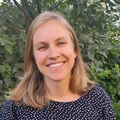
- 2024
- Outstanding Student and PhD candidate Presentation (OSPP) Award
The 2024 Outstanding Student and PhD candidate Presentation (OSPP) Award is awarded to
Sarah Hanus Glaciers – an overlooked water balance component in global hydrological modelling
Read more
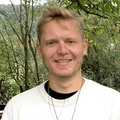
- 2024
- Outstanding Student and PhD candidate Presentation (OSPP) Award
The 2024 Outstanding Student and PhD candidate Presentation (OSPP) Award is awarded to
Simon P. Heselschwerdt Projected shifts and dynamics in blue and green water resources availability
Read more
Current issue of the EGU newsletter
Current issue of the HS division newsletter
What is new in the Hydrological Sciences Division in June This month we're sharing that the IAHS 2025 Scientific Assembly and the 18th International Conference on Sustainable Development are coming up soon! Join an upcoming seminar by AGU featuring recipients of the Precipitation Student Award 2024 and register for the EGU Science for Policy Hangout. Finally, head over to the blog and read some of our newest posts from May and June!
Read more




















